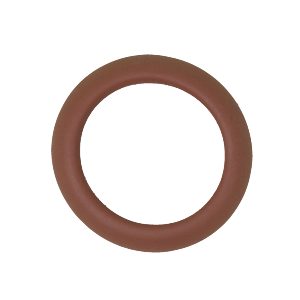The big guide to menstruation
There are many misconceptions and taboo surrounding menstruation, even though it's a completely natural part of life for many people with a vulva. That's why we have collected some questions and answers, so you can learn a little more about menstruation
What is menstruation?
Menstruation, also called a period, refers to the period of time where a person with a vulva experience bleeding. Menstruation happens as the body prepares for pregnancy during each menstrual cycle. More specifically, the body starts preparing one or more eggs for fertilization, inside the ovaries. When the eggs are ripe for fertilization, they travel from the ovaries through the fallopian tube and towards the uterus. If the eggs have not been fertilized by sperm before they reach the uterus or soon after they have reached it, the eggs must be ejected from the body. The eggs are ejected as the lining of the uterus breaks up and is then expelled through the cervix. This lining also rebuilds itself between each period!
The blood that comes out when you have your period is therefore a combination of blood and mucus membrane from the uterus and also discharge.
You can read more about the physiological explanation of menstruation in our guide here.
For how long do you have your period?
For most people, menstruation lasts 3-7 days. It is very individual how much you bleed during that period, but most people experience bleeding about 0.8 decilitres.
It can be difficult to know when you are bleeding "too much" and what is a "normal" amount of blood. Menstruation varies from person to person, so there is no "normal". With that being said, you may experience more heavy menstruation than what is healthy for your body. Very heavy periods can also be caused by certain disorders, such as PCOS and endometriosis. So if you experience:
- Bleeding through things like tampons or pads 1-2 hours (or less) after changing them
- Having to change pads during the night
- Often bleeding through your clothes
- Experiencing lumps in your menstrual blood larger than a walnut several times during your period
...it may be a good idea to see a doctor. When you bleed more than your body can handle, you may also experience nausea, dizziness and general discomfort. This is because your blood percentage is low. If you experience persistent dizziness and nausea or fainting while having your period, you should see a doctor.
You can also read more about endometriosis in our guide here.
When do you get your period?
Menstruation occurs during puberty, which can be referred to as a transition from childhood to adulthood. Most people get their first period between the ages of 10-15, but some may have it earlier or later - it's not necessarily a sign of a physical problem.
Puberty is experienced by most people as:
- Hair begins to grow under the arms and on the vulva
- Breasts may grow
- You may grow taller
- You start to smell different
- You get your period
Stress and poor nutrition can affect when you get your first period, and can delay it compared to when you would otherwise gotten in.
What does menstruation blood look like?
As menstruation consists of discharge as well as blood and mucus membrane from the uterus, it is not necessarily red blood that comes out. It's normal if your menstrual blood is red, very dark red or brownish. It's also normal if there are lumps in the blood, as these may be parts of the lining from your uterus.
When you have your period, the hormones in your body are affected, which can also affect how your vagina smells. It's normal for your vagina to smell differently during your period, and maybe smell a little sour. However, you should be aware if the smell persists long after your period has ended, as it may be caused by bacterial vaginosis or another infection.
Does menstruation hurt?
How you experience your period varies from person to person. Many experience mild discomfort, pain in the lower back or stomach, fatigue, mood changes and constipation in the days leading up to and during their period. So it's possible to have menstrual pain without any bleeding, and this is typically a sign that it is on it's way. The above mentioned symptoms are rarely a cause for concern and can often be relieved with a little over-the-counter pain medication and a heating pad on the abdomen.
But if your menstrual pain is so severe that you have to call in sick or you can't get out of bed, you should seek help. Severe menstrual pain should NEVER be accepted and in many cases can be relieved by taking a contraceptive pill or something similar. Severe menstrual pain can also be due to other causes such as endometriosis, previous STDs or muscle tension, and although the cause is not necessarily dangerous, it is important to seek help.
What is an irregular period?
When we say a regular menstrual cycle, we mean that there are approximately 21-35 days between the first day of your period and the first day of your next period. This number can vary and the average cycle is 28 days.
Some people may experience shorter or much longer periods between menstruation. It is also very typical for your periods to be irregular for the first few years after having your first period. This is typically due to hormonal imbalances, which are not necessarily dangerous. This is why you may also experience irregular periods leading up to menopause, as the levels of certain hormones also change during this time.
Irregular periods later in life can be caused by stress, nutrition, certain forms of contraception such as the pill or an IUD, cervical polyps or PCOS - so a missed period is not necessarily a sign of pregnancy.
Typically, an irregular period is not a cause for concern, but if your period used to be regular and has become increasingly irregular, it may be a cause for concern. A pelvic examination by a doctor or gynaecologist can often show the cause of the irregularity, so it cam be a good idea if you are experiencing irregular periods.
Can you get pregnant when you have your period?
When eggs from the ovaries break free and move towards the uterus, this is called ovulation. This is the period when you are most likely to get pregnant - BUT that doesn't mean you can't get pregnant outside this phase of the menstrual cycle. It's unlikely to get pregnant while you're having your period, but that doesn't mean it's impossible.
There is ALWAYS a chance of pregnancy if you are not using a contraceptive method and have unprotected sex. If you want to avoid pregnancy, you must use a contraceptive method. You can read more about contraceptive methods in our guide here.
Can you have sex when you are menstruating?
Yes you can have sex while you are menstruating! Some people even find that sex can be good for menstrual pain. This is because sex can cause the body to release the hormones oxytocin and dopamine, which are pain relievers.
However, others find that sex hurts when they are menstruating. This may be due to the position of the cervix, which can move up and down inside the vagina during your cycle. So if the cervix is lower than when you have sex outside your cycle, it can be painful if something bumps into it.
Listen to what your body needs and wants, and remember that sex should never hurt. You can read more about sex and menstruation in our guide here.
To learn more about the vulva and vaginal anatomy, read our guide here.





